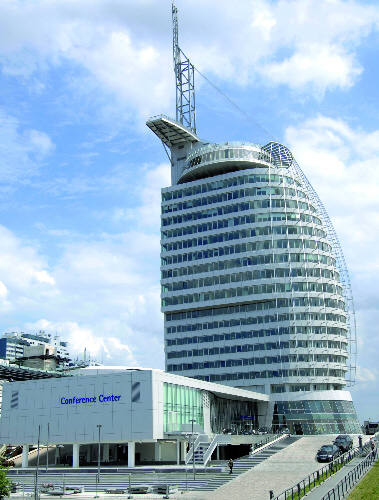
News & Stories
Bad Laasphe. The Ramada Hotel Bad Laasphe closed its doors forever on January 28, 2010. In difficult times such as these, this would not be worth mentioning, if the entire case was not exemplary of critical issues related to hotel investments and maintenance. The owners' association of the 86-room hotel, which is located close to Marburg in the district of Siegen-Wittgenstein in central Germany, has been arguing with Prospector GmbH, the operating company, for many years due to lease payments and due maintenance investments. Against the backdrop of the history of origins, a well-known name throughout the industry is brought up: Helmut Fitz.
Eschborn. 80 new hotels joined the progros purchasing pool last year. With this, the professional purchasing company is used by around 620 hotels in Germany and progros' total purchasing volume increased by almost seven percent to 128 million EUR
Augsburg. Undoubtedly due to the upcoming elections in Germany's most populated state, North-Rhine Westphalia, politicians play their most incredible hands: The recent push by the CDU Minister President Juergen Ruettgers and his deputy Andreas Pinkwart to reverse the VAT reduction for the German hotel industry has caused waves of scandal this week not unlike those surrounding the recent Von Finck affair. Hoteliers in Cologne also canvas opposition for the newly planned "bed tax". All of this seems finally to have jolted even Germany's sleepy hoteliers awake. Ingrid Hartges, CEO of the German Hotel and Restaurant Association Dehoga in Berlin, reports of floods of calls and e-mails on the subject of VAT. Yesterday, the German ministry of finance addressed to Dehoga regarding the breakfast rules. An outline of the current state of play.
Prague. In Prague, guests can currently get rooms for 30 euros in 4-star hotels. Agents even pay significantly less. The price war sheds dramatic light on the situation in Eastern European countries and on 2010.
Prague. As of recently, the Prague-based hotel group Mamaison has had a new corporate identity and new website. The objective of the change is to underline its ambitious plans for the future: growth to 35 hotels within the next three to four years. Ten hotels in Central and Eastern Europe are counted by the group today.
Berlin. Other countries would welcome the reduction, only in Germany, with its culture of envy, have media managed to talk and trample it all to death. Only very seldomly has a programme introduced by government attracted so much attention and activism on part of the press as the VAT reduction for the German hotel industry has managed. Since 1 January 2010, not a single day has passed without accusations being laid at the hotel industry's door. Now, even the abolition of the reduction is being discussed, or at least a basic reform of the measure. A particularly German farce.
Berlin. As of 1.1.2010, VAT was reduced in the German hotel industry from 19 to seven percent. In the first weeks following its introduction, the reduction has resulted tension throughout the industry. Whereas consumer groups have demanded price reductions, hoteliers wish to see the savings used to improve guest services. Meanwhile, the communes are already planning new culture levies.
Bad Honnef. The international University of Applied Sciences Bad Honnef/Bonn and the Association for Systemic Management will offer a new "quality management" course for hotel and tourism studies as of March 2010.
Berlin/Prague. This Monday in Prague, the foundation stone was laid on the way towards a standardised European hotel star classification system: Hotel associations from Germany, the Netherlands, Austria, Sweden, Switzerland, the Czech Republic and Hungary established the "Hotelstars Union".
Bremen. The Zech Group GmbH, based in Bremen, has steadily expanded its hotel commitments in recent years. Today, Zech Hotel Holding holds interests in nine hotels and a residential care home. By the end of 2010, four further hotels will open. The group's hotels are either bundled in the Atlantic Hotel consortium or have roofs adorned with franchise name like Holiday Inn.






